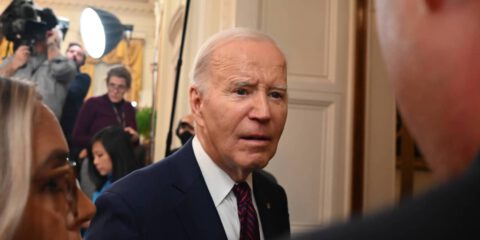Israel is in the midst of a war, one not of its choosing but rather the result of the October 7 Hamas assault and Israeli miscalculations about Hamas. Accountability reviews and governmental reforms in the area of national security have either started or will surely follow.
This article offers three reforms to improve the coordination of Israel’s national security organs. They include the Israel Defense Forces (IDF), the ministries of defense, foreign affairs, energy and trade, the National Security Council, intelligence agencies, and others. Some of these reforms involve strengthening existing measures and formalizing them.
Establishing A Biennial National Security Strategy
Israel has never adopted a written national security strategy. The closest approximation was the 1953 remarks of Prime Minister Ben Gurion to the cabinet. There are worthwhile efforts to describe an unwritten strategy based on policy preferences.
The complex situation that Israel now faces requires a written strategy. How should the country address the differentiated threats from Hamas in Gaza, Hezbollah in Lebanon, the Houthis in Yemen, various actors in the West Bank, and the regime in Iran? What are the top engagement opportunities in the Middle East, Asia, and Europe and how should they be viewed considering the threat environment? How can the country deepen its ties with its greatest ally, the United States, while avoiding becoming dependent? These and other questions should be addressed.
Not having a formal strategy can result in the kind of policy failure we saw vis-à-vis Hamas before October 7.
Such a strategy should be drafted by the National Security Council staff and adopted by the government. Empowering the NSC staff would have the side benefit of improving its ability to coordinate policy among agencies. The defense ministry would naturally play the leading role in defining the security environment, while engagement with important regions would have key input from the foreign ministry.
To be most effective, this strategy should be a public document mandated every two years to coincide with the biennial budget submission and thus connect to the government’s fiscal strategy. Probably the right legislative vehicle to establish this document would be an amendment to the 1999 National Security Council Law.
Limiting the Number of Ministries and Cabinet Positions by Law
Israel’s full cabinet currently has 38 ministers plus other agency heads. In contrast, Sweden’s parliamentary government, formed, as in Israel, by coalition agreement among parties, has a 21-member council of ministers. In the US, the cabinet has 16 permanent members, and the president may designate other positions as cabinet level (e.g., a United Nations ambassador), but that is discretionary and limited in practice.
Israel has passed laws in the past to limit the number of ministerial positions to 19, but with each new government exceptions are allowed, or the law is changed. Both right-wing (Kohelet Forum) and left-wing (Israel Democracy Institute) think tanks have called for a new limit on the number of ministries.
The proliferation of ministries and cabinet members in Israel detracts from national security decision-making, particularly in the arena of foreign policy, where roles are often duplicated. For example, separate ministries for public diplomacy and diaspora affairs – both established under prior governments – duplicate the work of foreign ministry offices dedicated to these issues, as well as complicating the core work of Israeli embassies and consulates overseas.
Consolidation of ministries will improve decision-making at the full cabinet level and coordination among ministries. The exact number of ministries should be established by agreement of elected politicians in the Knesset. The US model of a fixed number of permanent ministries, plus the ability of the prime minister to appoint additional members to the cabinet on a discretionary but limited basis, is worth examining.
Requiring Interagency Review of Foreign Investments
A final reform addresses the economic arena of national security, which should be bolstered in general owing to Israel’s growing economic importance in the region.
Every country needs a process for monitoring and reviewing, on national security grounds, the proposed investments of foreign-owned and foreign-financed companies. This is different from regulatory reviews – for example of health and safety standards or anti-monopoly effects of an investment, which are already robustly enforced in Israel. The sole concern of a national security review of a proposed foreign investment is to ensure that strategic infrastructure and industries – including real estate – are not imperiled.
In May 2020, US Secretary of State Mike Pompeo made an emergency visit to Israel to raise concerns, both in areas of national security and technology transfer, about the proposed investment by a Hong Kong-based company in Israel’s Sorek desalination plant. Following American pressure, Israel did establish in 2020 an “Advisory Committee for Examining National Security Aspects in Foreign Investments.” However, its operations are limited in scope and not transparent (for instance, it’s not clear what investments are subject to this committee’s review).
One model to consider is the Committee on Foreign Investment in the US. Established by an act of Congress, it is chaired by the US Treasury and includes officials from nine other agencies; its guidelines are online and frequently updated by decree. Among the sectors mandated for review are not only high technology (artificial intelligence, cyber security) but also investments in food security and strategic infrastructure such as port management. Israel has effective interagency models as well; for example, its inter-ministerial committee on arms sales.
Conclusion
Underlying all three reforms is a realization that Israel is a regional power, militarily, politically, and economically. Legal changes are not a panacea, and they would be implemented in an informal Israeli political culture that often favors tactical considerations that lead to one-time exceptions to laws. But such changes would nevertheless establish expectations and improve national security decision-making.
The key reform – establishing a written national security strategy – looks back to a best practice from the pre-state yishuv of the early 1940s. Then, thanks to the written articles and essays of Ben Gurion as head of the Jewish Agency, the community had strategic direction. It would ally with Britain to fight the Nazis while building the institutions of a state which would in time replace British rule.
If the small and powerless pre-state Jewish community could implement such a strategy in the face of multiple deadly challenges, then the current state of Israel can certainly envision, and then implement, a strategy that secures its place in the region.
JISS Policy Papers are published through the generosity of the Greg Rosshandler Family.
Photo: IMAGO / ZUMA Wire / Chuck Kennedy








 - בניית אתרים
- בניית אתרים